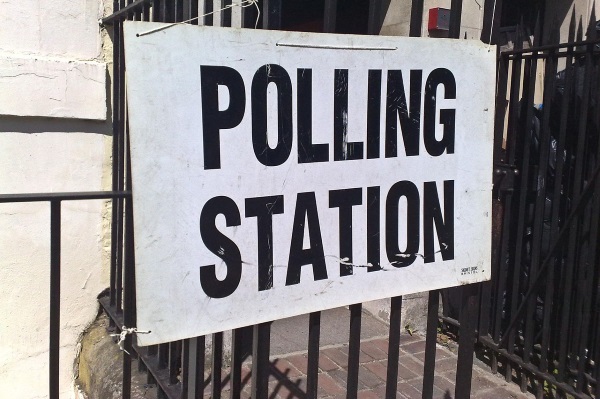Many promises for a better system of education will be made before June’s election. What issues are you hoping to see discussed, and what does the next government need to deliver?

Just when you thought you'd voted enough... (Picture credit: secretlondon123)
As campaigning gets underway for June's snap election, each party will be drafting their manifesto for a stronger, greater Britain.
But what education policies or commitments do we want to see - or not see - promised? We asked some of our contributors for their views.
What are you looking for the next government to deliver? Let us know in the comments below.
Note: the views expressed below are personal, and do not reflect those of any organisation or institution.
Since 2010, the pace of change in education has been eye-watering. With (yet) another election in the offing, I would like the incoming government to grant the following three wishes.
Stop wasting money
While I have long given up objecting to academies and free schools, I am constantly amazed at the colossal sums of money that have been wasted in setting up free schools that later crash and burn. We have recently seen two very expensive football club-sponsored schools fail and close. And they join a lengthening list.
Also, I am concerned by the astronomical salaries being paid to some CEOs and executive heads. Somewhere out there, there is a primary executive head earning a salary of £374,147. That’s in a local authority, and he is the tip of a large iceberg.
Ultimately this is public money, and should be spent on educating the nation's children.
Abandon the common funding formula
The common funding formula is a lousy idea wrapped up in a good principle. Whether or not Justine Greening will continue at the DfE or use her accountancy skills elsewhere, the message from schools is that there simply isn't enough funding in the system.
Education in this country has been free since the 1880 Mundella Act, so why must parents now chip in when the school cannot pay the bills?
There might (just) be a link with my earlier point here. Get the funding right and we can have the best system in Europe, but don’t drive schools into the ground with the excuse of parsimony.
Stop the grammar schools adventure
They are not a tool of social mobility and never will be; they are ideological bunkum.
Whatever happens in June, my wish is for those at the top to value what we do, not what we don’t, and appreciate our impact on social mobility.
Establish a support framework for staff wellbeing
With deeper budget cuts and higher threshold levels in support services, teachers have a lot on their plates. I know the phrase ‘wellbeing’ gets banded about quite often, but it’s high time the government firmly acknowledge the complex level of support our pupils need from staff that are under an unsustainable amount of pressure and distress.
Let’s establish a framework of support, and mandatory supervision sessions for teachers and school leaders.
Let the dust settle on primary education
I don’t want to see any more changes to policy being made with reactive or tactical motives. Primary education has been through enough change over the last few years and it is vital that we give time for the assessment and curriculum reforms to embed.
Recognise the expertise on the front lines
I want the government to accept that the most qualified policy-makers are the people on the frontlines: we really do know what we are doing!
The secretary of state for education has made some positive steps, particularly when gave a charged speech about the profession at the Chartered College of Teaching’s inaugural conference.
In her words, ‘teachers are the experts who inspire the professionals of the future… and we shouldn’t underestimate just how powerful that is.’
Funding has to be the primary concern for parents, carers and those working in education. The next government will avoid this crisis at its own peril.
Take fairer funding seriously
Discussions around a fairer funding system for schools must be more open, and the government needs to recognise additional money is needed to resource our schools adequately.
And that means SEND!
Funding for young people with SEND needs to be regularly reviewed, properly ring-fenced and appropriately supported. Blanket, illegal policies driven by financial cuts rather than individual needs are segregating young people from their communities, and causing huge distress for families already under significant pressure.
We have an increasingly diverse population that needs, by definition, personalised education, health and care support.
This cannot be achieved unless the government:
I would like to see policy direction move away from headlines and towards real change that is supportive, sustainable and with a strategic direction. This means focusing less on grammar schools and more on giving an equal education for all, regardless of who you are and where you live.
Stop forcing cuts
Let's end the -1.5% minimum funding guarantee. I am sure that many schools have already cut back the fat and are now in danger of chipping away at the skeleton of education provision.
Have a plan for academies
Academies are here to stay, but I would like to see a more consistent approach and a clear strategy for achieving the government's predicted outcomes.
Don't use education to score points
I would love to see an end to politicians using education as a battleground with which to score points. Only by working together in a solution-based environment can we give young people the best possible education and start to their lives.